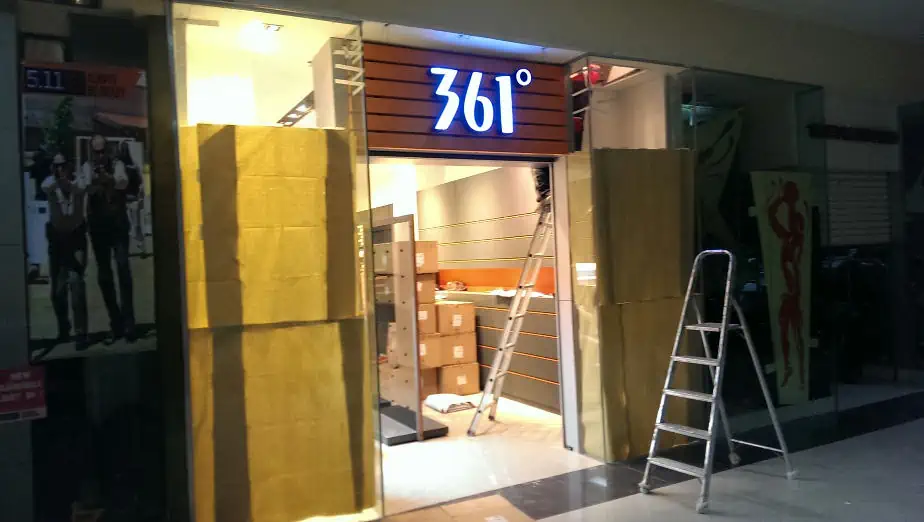I’m into coffee these days, and I am peering for angles to turn this newfound passion into a business. The idea is cliché thus far: to open a coffee shop. But as I gaze from where I am now, the road going there won’t be a straight one.
There are major humps I have to take into account, like:
- Competition — Is coffee still a viable business despite the huge players?
- Experience — I only have a little knowledge and zero experience of running a coffee shop. All I have now is passion!
- Capital — How much would it take to start a coffee business?
- Unique Selling Proposition (USP) — What is so special about my coffee?
I would definitely have a high risk of failing if ever I decided to set up a coffee shop today. So here’s my plan: start the business online.
It is never a bad idea to start any business online. This allows us to set up quickly, test the market and validate our ideas with minimal risk. When we eventually open physical stores, our online efforts wouldn’t be wasted since they will complement our offline operations. And if the venture is not viable, we can easily pivot to another one in a few clicks.
To elaborate on this further, let us make a comparison of starting my coffee business online versus offline.
Read: 4 Reasons Why It Is Worth It To Start An Online Business
The differences between online and offline businesses
| Online | Offline | |
|---|---|---|
| Product | Can focus one at a time. | Need to develop multiple products at once. |
| Place | Website and social media. | Shopping mall. |
| Promotion | Digital marketing | Digital marketing + print ads |
| People | 1 to 2 employees | At least 3 employees |
| Price | Lower | Higher |

Product
- Online: I can focus on one product at a time.
- Offline: I have to come up with multiple products at once.
Developing products takes time and money. Starting my business online allows me to focus on one item first. To think out loud, I am planning to sell bottled lattes — as it is my favorite version of coffee. My wife and I have traveled a few hundred miles these past few months to explore the different kinds of brews we have in our country. We are trying to discover our ideal taste for a latte. So far, we have already come up with two kinds of recipes.
The same cannot be said about a physical coffee shop. It would be weird for a customer to come in and find there is only one item on the menu. A coffee shop usually has several choices of coffee and food.
Place
- Online: Facebook page and a SpreadSimple e-commerce site.
- Offline: Shopping mall
Here are the two places where I plan to sell my bottled lattes:
- Facebook Page
- SpreadSimple e-commerce site
These two are my staple online distribution channels. A Facebook Page is essential for its chat function and a way to push fresh content. Most of the selling is usually done inside Messenger.
The SpreadSimple e-commerce site, on the other hand, serves as the main store where customers can look deeper at the products and settle their payments through debit or credit cards. SpreadSimple also has a backend where we can easily manage our product’s information and inventory.
To see a sample of these distribution channels, you can check out my Chromebook business’ Facebook Page and SpreadSimple e-commerce site.
Setting up these outlets would not take over a week and won’t cost me more than $100. As for the brewing station, I can use our home kitchen for that purpose. I have already bought a coffee grinder and a couple of Moka pots to make espressos. We will upgrade our equipment accordingly.
By contrast, a coffee shop in a shopping mall will take at least three months and cost more than $100,000 to build.
Read: Things You Need To Start An Online Business (Cost-breakdown)
Promotion
- Online: Search engine, social media, product sampling, ads.
- Offline: Search engine, social media, product sampling, ads, print ads.
Aside from a Facebook page and an e-commerce site, a blog or a YouTube channel is another essential element in starting a business online. The main reason for this is to make our brand searchable and earn organic traffic. Furthermore, it will also allow us to build trust with our audience, which hopefully converts them into paying customers or followers.
Google loves to index high-quality pieces of content. So the plan is to produce a ton of helpful, search engine optimized, articles and videos which can direct visitors from our blogs/channels to our Facebook and SpreadSimple sites. Search engine optimization is a process I learned in Project 24 by Income School. It is by far one of the most effective and efficient ways to market our products today.
As for social media, I will simply stick with Facebook for now. If I have to add another channel, maybe Instagram or Pinterest. But those are optional.
I have also started sending out some samples of my brews to friends and families to get their feedback. Once I get the final recipe, I plan to jump-start the coffee business with Facebook and Google Ads.
As I ponder on it now, I do not think I will have a different marketing approach for a physical coffee shop. Aside from the mall foot traffic and directional signs, I would still utilize the power of the internet to promote my business.
People
- Online: I can run it with my wife.
- Offline: I have to hire a few employees.
The most beautiful thing I found in having a business online is I do not have to deal with employees — especially in today’s pandemic. Like our other online businesses, I am certain I can also run this planned start-up with only my wife by my side.
This won’t definitely be the case if ever I would start the business physically. My estimate is I would need to hire at least three employees to run the coffee shop efficiently.
Price
- Online: I can price our products lower since there is not much overhead.
- Offline: Higher price due to higher overhead costs.
One competitive advantage my wife’s jewelry business has over those who are more established is that it is 100% online. She can offer bigger diamonds at the same price as others because most of the value is spent on the stone, not on the store’s overhead cost. The same concept applies to this coffee business. I can offer better quality coffee at a similar price, or maybe even less than what a coffee shop offers.
Read: Business Is Not Easy To Learn (Why you should do it anyway)
Disadvantages of starting an offline business right away
Starting a business offline can expose you to a lot of disadvantages. A physical store costs more and is generally slower to start. It also has a limited reach and is harder to maintain compared to its online counterpart. Additionally, offline businesses are less likely to be able to transition to another venture if it fails.

Here is to expound on the disadvantages of starting a business offline:
Higher cost
Cash is the lifeline of any business. You lose the game once you run out of it. Unless you knew 100% what you were doing, you would be like playing for a hole-in-one if you had $100,000 and spent it on a physical shop. The business must succeed on the first try or else you will go back to working for other people or borrow their money to start a new one.
On the flip side, starting online with the same budget gives you an allowance to fail and try again up to a hundred times.
Slower to start
The process of opening a shop in a shopping mall is taxing.
- You need to submit a proposal, an application form, and business plan to the mall admin.
- Wait for a few weeks for them to review and approve the application. They will also check if there is a space available.
- Once approved, they will furnish you with their requirements and construction guidelines.
- You will spend about a week or more completing their requirements.
- Once complete, the admin will set up an orientation meeting with you and your architect to discuss their building policies.
- Start of construction.
Give or take, you can start serving your customers in three months.
For online, we can start selling and publishing posts in a week or less. What’s best is we can accomplish all that with our laptop at home.
Limited reach
A physical store relies on foot traffic. Based on research, the average number of visitors in a shopping mall per day is between 400 and 900. I rummaged through the old data of our sports boutique and learned we were getting about 150. And out of the 150 walk-ins, only 4 of them would make a purchase! No wonder our business did not survive.
Offline businesses cannot last on their own because of their limited reach. They need to tap on the power of the internet to promote themselves nationally, or even globally. Based on a report, more and more people now prefer to purchase online. Global e-commerce retail sales are projected to hit a new high of $4.9 trillion by the end of 2021. That’s a 256% growth rate from $1.3 trillion in 2014! Moreover, e-commerce sales are consistently chomping on the worldwide retail market. Purchases made online are expected to take up 17.5% of the total global retail sales by the end of the year. E-commerce is growing every day.
Harder to maintain
Our boutique’s monthly overhead cost is around $1,600. This includes rent, utilities, wages, and miscellaneous fees. Add to it the invisible expense called depreciation — which generally accounts for 15 to 20 percent per year.
Let us contrast it with our online business, which has virtually no overhead cost. Add to it the time and energy we need to spend on cleaning and maintaining the store itself.
Difficult to pivot
Here is the biggest disadvantage of an offline business: Flexibility.
According to statistics, only 3 in 10 start-ups will make it through the ten-year mark. What this means is there’s a 70% chance the business we are starting right now will not succeed.
I don’t mind failing, it is a part of the process. I went into the athletic wears business in 2012 and shut it down by 2016. I can deal with that. But what really finished me off was the fact that I could not reuse any of the assets I had invested in. The fixtures, the stocks, the systems. Everything has become useless. I have no other option except to start from scratch. I believe I would be far better off right now if there was a way to simply change the store’s signage and offer different products or services.
You can read my story on how I eventually transitioned my offline business to online here.
Anyway, the project that got me back on track in 2017 was my online bus transportation service. It provided well enough until Covid shut it down in 2020. I failed another business, but the difference this time is I was able to shift to another one using my current assets. I copied the system I had developed for the bus company and pasted it on the new venture. I was back in business in a couple of months.
Read: How much do stay-at-home dads make? — My Actual Numbers
Why start your online business right now?
Why not? Here are three reasons why you want to start your own online business today:
- Blogs and e-commerce sites generally take eight to twenty-four months to be profitable.
- Most of the learning involved in running an online business is done through trial and error.
- You are missing out on a lot of opportunities on the internet.

Closing Thoughts
This post by no means cancels offline businesses. As I mentioned earlier, my end goal is to open a coffee shop. There is nothing better than physically serving people and seeing them enjoy their coffee. But the thing is, I do not know whether I will be able to make it there or not. But starting this business online gives me a better fighting chance.
Check out these online classes that can help build a profitable online business:
Blogging and YouTube
Income School
Income School is an internet marketing company that teaches people how to create an internet business through blogging and creating YouTube Channels. Income School is best known for its popular internet marketing and SEO channel on YouTube.
Freelancing and digital marketing
Learn by Fiverr
Learn from Fiverr is an online, on-demand video classes platform, specially tailored for freelancers and professionals. All classes are taught by top experts, who are distinguished in their fields.
See other recommended resources.
Keep In Touch
Thank you for reading!
